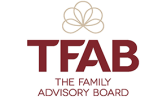One of the qualities that characterize family businesses (FB) is the constant search for generational continuity. This is not simply a desire of the partners, but a real purpose or objective. The transfer of the management and administration of the company, from one generation to the next, is a process that unveils as much to those who slowly begin to leave their seats, as to those who will have to occupy them.
It is a complex process, in which the personal and economic interests of different people, separated by an age gap that makes it even more challenging. In this logic, the most appropriate instruments to approach a generational succession in a successful way are the Protocols or ‘Strategic Family Programs’ (PEF).
These protocols are structured on the basis of the main objective they pursue: to prepare the family business for the moment when the next generation takes over the management of the activity. Situations that may lead to conflict are anticipated and a comprehensive solution is sought that will allow moving towards a generational transfer in the most orderly way possible, taking into account the wishes and aspirations of the different members of the family.
It should be noted that the existence of an efficient and planned succession process depends on the existence, in parallel, of sound corporate governance and sound family governance. The question, then, is: What do these two concepts really imply? It is about shaping effective governing bodies to carry forward the management of the company and the development of the business but preserving, at the same time, the family essence (see BERMEJO SANCHEZ, M. Gobernando la empresa familiar, Ed. Pearson, 2017, Madrid).
On the corporate governance side, it is necessary to set up Boards of Directors and Executive Committees; while on the family governance side, it is essential to set up Family Councils, Family Assemblies or any other body that denotes the influence of the family in the business environment.
Notwithstanding the above, what is certain is that, beyond the governing bodies that are established, what is important – and challenging at the same time – is to achieve a balance between these two spheres of governance, because if one of them falters, it will automatically have repercussions on the other.
Having made these clarifications, the purpose of this brief article is to address the extent to which having a compliance management system influences the achievement of an adequate corporate governance and even a solid family governance, supporting and strengthening what is established in the family protocol.
In this sense, Compliance will not only have an impact on governance, but will also become the cause of an orderly and effective generational succession process.
A compliance management system implies the design and implementation of a set of procedures and good practices to prevent the company from failing to comply with legal norms, market regulations and self-imposed commitments, from a risk control and management approach (see conf. BONATTI BONET, Francisco (Coord.) Compliance en las pymes: El protocolo familiar y su influencia en la gestión del compliance de la pyme empresa familiar, ASCOM, Madrid, 2021 Sept.).
Since 2010, when the criminal liability of legal persons was established in Spain and since the reform of 2015 in which Compliance programs were included as one of the requirements for the extinction of such liability, the importance of this matter in the business environment has grown exponentially.
As a result, multinational companies have seen an increase in demand in the labor market for specific positions dealing with this issue and an overabundance of training courses in this area.
This could lead one to think that having a good compliance management system is only an obligation for mega-corporations or a ‘luxury’ that only large multinational companies can afford. However, nowadays, this reasoning has been completely overcome: In these times, in which the legal entity is exposed to a huge number of risks, which can generate both criminal liability and loss of reputational value, implementing a Compliance program is a requirement of any company.
In this logic, Compliance should not be seen as an obligation imposed by the legal system, but as a tool, a ‘lifesaver’ that allows precisely to manage all these risks.
Any company that intends to operate in the second decade of the 21st century must have a well-structured compliance system. Obviously, the size of the organization will have an impact on the budget that can be allocated and on the complexity of the program to be designed, but this will not prevent it from being implemented effectively in a smaller organization.
As far as we are concerned, family companies as such do not have a specific size. They can be small, medium or large, and regardless of their size, they are precisely companies and as such, they fall into the group of subjects that must implement a compliance management system. Having it, far from being just another requirement, should be analyzed as a tool to be taken advantage of, beyond its initial objective, which is to avoid criminal liability. Having a management system of this type implies precisely analyzing the risks to which the company is exposed and looking for ways to mitigate them.
Particularly in family businesses, the way in which the generational transition will be carried out, which should not only be in accordance with the will of the family members but also in accordance with legal requirements, is addressed as a risk. On the other hand, it is not only an internal benefit, but nowadays in the ‘culture of transparency’ in which we are immersed, it is an element that makes the reputation, the image of the company: Having an effective Compliance program reflects an ethical corporate culture.
Compliance management systems go hand in hand with a good corporate governance structure and it is precisely here where many families fail in the management of their businesses. As these are companies that were born in a framework of trust given by personal family relationships, informality often reigns (see BEHRINGER, S., ULRICH, P., & UNRUH, A: Compliance management in family firms: A systematic literature analysis. Corporate Ownership & Control, (2019) 17, 140-157. http://doi.org/10.22495/cocv17i1art13). There is some fear and reluctance to change the way decisions are carried out and the implementation of structured governance bodies seems to be a threat. “Why submit ourselves to a pre-established regime if everything comes working?”
Experience has shown that, sooner or later, the lack of internal organization in family businesses ends up taking its toll on the business itself. In this sense, family protocols come precisely to respond to this problem and are usually the document that will provide the necessary basis for the implementation of Compliance (see BONATTI BONET, Francisco (Coord.) Compliance en las pymes: El protocolo familiar y su influencia en la gestión del compliance de la pyme empresa familiar, ASCOM, Madrid, 2021 Sept.).
The other side of the coin is that family businesses have been pioneers in worrying about generating a good social image beyond financial results. For here it is not only a question of asset values, but also of the value and image of the family. Their vocation to remain in the market and to transcend the first generation has always entailed a meticulous care of their reputation. This has led to the FE having a commitment to business ethics long before compliance appeared in the corporate world. As we have mentioned, the ethical culture of a company is the fundamental pillar when talking about the effectiveness of these management systems and it is here, where the family business takes the lead (see KABBACH DE CASTRO L. R; AGUILERA R. & CRESPÍ-CLADERA R., Family Firms and Compliance: Reconciling the Conflicting Predictions, Within the Socioemotional Wealth Perspective, Family Business Review, (2017) Vol. 30(2) 137-159).
Under this scenario is from which to call for reflection: The globalized world does not distinguish between family and non-family businesses, but demands professionalization. Good corporate governance should be seen as a necessity. Once it is in place, having a compliance management system will consolidate it even more and reinforce the ethical imprint that lies in the spirit of family businesses. It is a matter of maximizing what characterizes them, which are their values and commitment to society, and minimizing the risks associated with informal governance.
Compliance offers a management model that, together with an efficient family protocol, places the family business in a highly competitive market position. It is not only about avoiding criminal liability and legal risks in general, but also about reflecting the trust and values that have historically been transmitted by family businesses, in a true and verifiable corporate culture.

María del Rosario Peláez
Junior Consultant at TFAB, specialized in Compliance Management Systems







